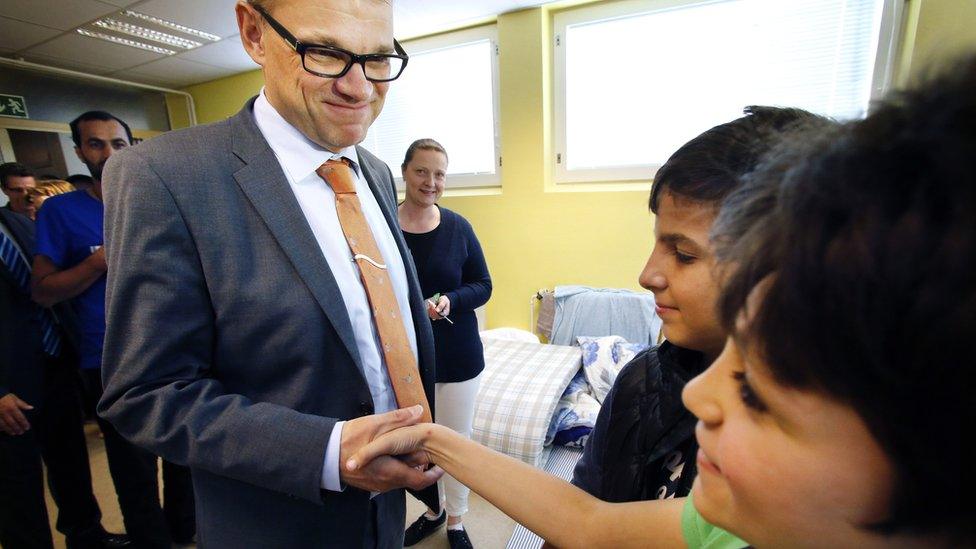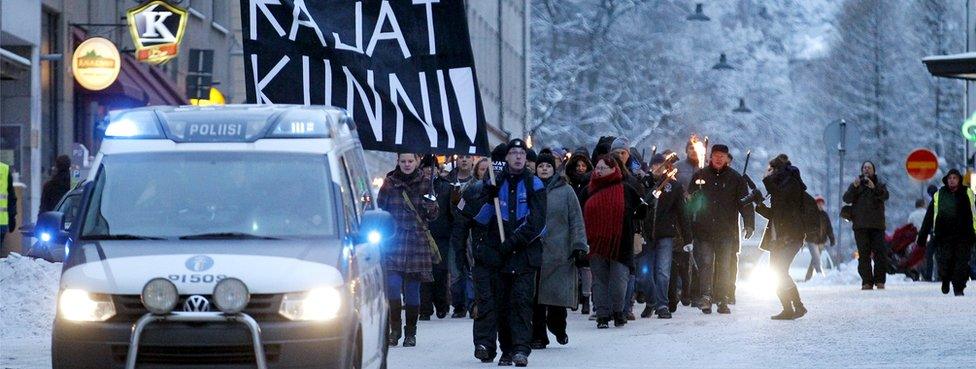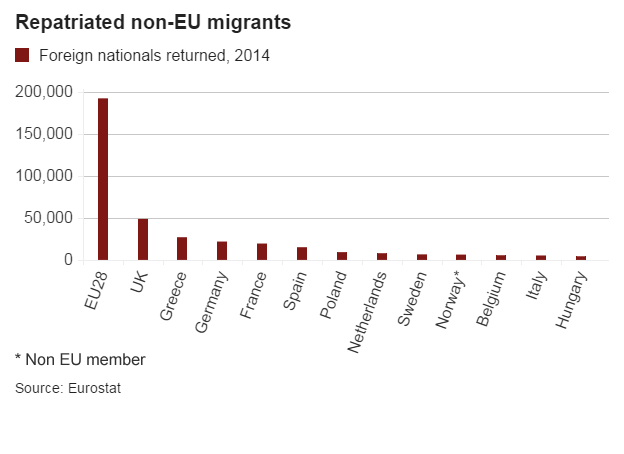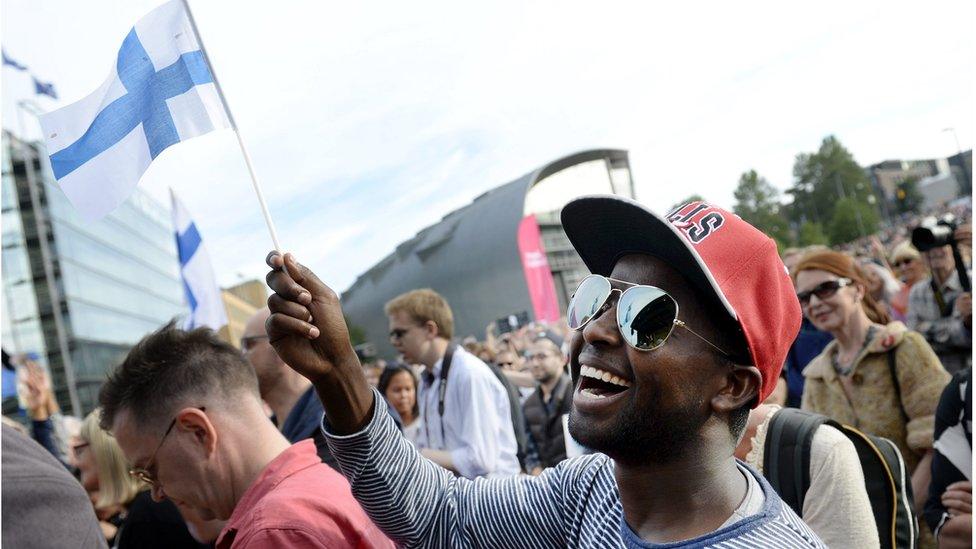Migrant crisis: Finland PM Sipila halts plan to host refugees
- Published

Mr Sipila rarely visits his home in Kempele and hopes a family can still move in once the security situation improves
Finnish Prime Minister Juha Sipila has put on hold a plan to open his country home to a family of asylum seekers, apparently for security reasons.
The cabinet security chief told Finnish media that Mr Sipila's offer last September had made the house "too public" for any family to stay there.
The prime minister had said everyone should "look in the mirror and ask how we can help" new arrivals in Finland.
However, anti-immigrant sentiment has hardened in recent months.
One report by Iltalehti newspaper said there were concerns that the arrival of asylum seekers at the house in Kempele in northern Finland would attract anti-immigration protesters.
Some 32,000 people applied for asylum in Finland in 2015, double the expected number, and the Finnish government has predicted 20,000 will be deported.


Police stepped in to prevent anti-immigrant groups and opponents attacking each other during a march in Tampere last month

Mr Sipila said on Sunday that his offer still stood and once the security situation improved then a family would be able to move in.
Other Nordic countries, Sweden, Norway and Denmark, have all tightened restrictions on asylum seekers in recent weeks.
MPs in Denmark last week backed a proposal to delay family reunions and enable police to seize valuables worth more than 10,000 kroner (1,340 euros; £1,000) from refugees to cover housing and food costs.
More than a million irregular migrants and refugees crossed into the European Union in 2015, mainly via Austria into Germany, and the size of the influx has prompted increasing concern about how they will be integrated.
'Rules and values'
Austria announced last month that it would place a cap on the number of asylum claims at 1.5% of the country's population over the next four years.
The government said the number of asylum claims would be limited to 37,500 in 2016, falling annually to 25,000 in 2019.
Defence Minister Hans Peter Doskozil said on Sunday that at least 50,000 people, who had either failed in their asylum applications or withdrawn them, would be deported by 2019.

Austria and Germany hope to expand an EU list of "safe" countries, whose citizens have little chance of securing asylum, to include Morocco, Algeria and Tunisia.
Germany, which took in more than 1.1 million asylum seekers last year, is looking at cutting benefits for new arrivals who do not try to integrate into society. Most refugees in Germany are from Syria, Iraq and Afghanistan.
Labour Minister Andrea Nahles, from the left-of-centre SPD party, told Frankfurter Allgemeine Zeitung that "whoever comes here to seek refuge and begin a new life must adhere to our rules and values". She said they would be expected to take language courses and adhere to German values.
'Temporary status'
Anti-immigrant sentiment has increased in Germany too, since the New Year's Eve sex attacks on women in several cities including Cologne and Hamburg.
Police blamed the hundreds of attacks outside Cologne station on men of North African or Arab appearance.
According to one opinion poll, support for Chancellor Angela Merkel's centre-right CDU and Bavarian CSU ally has fallen to 34%, the lowest rating since 2012.
At the weekend, Mrs Merkel told a party meeting that refugees would be expected to return to their home countries once there was peace in Syria and so-called Islamic State had been defeated in Iraq. ""We need... to say to people that this is a temporary residential status," she said.
- Published9 September 2015
